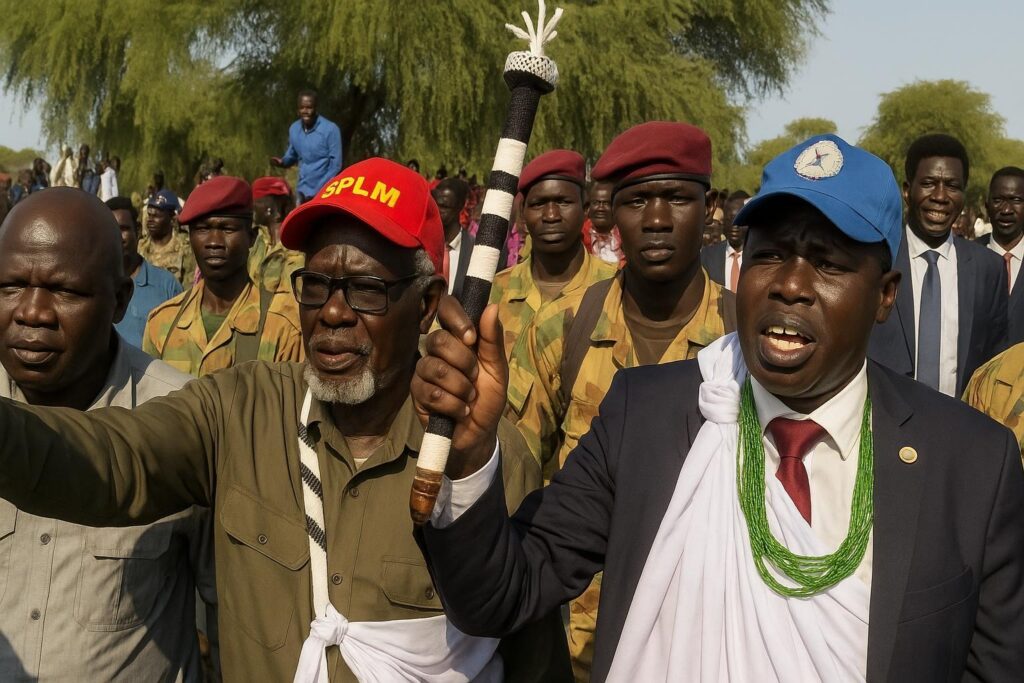Akobo Arrival Raises Stakes
Dr Riek Gai Kok landed at Akobo on Saturday, ending weeks of speculation and jolting Jonglei’s delicate political balance.
Security aides described a calm reception, yet murmurs among residents hinted at deeper unease over the governor’s mandate.
Dispute Rooted in Peace Accord
The row dates to March 2025, when President Salva Kiir replaced Mahjoub Biel Turuk with Kok, reallocating a seat reserved for the South Sudan Opposition Alliance.
Chapter 1.15 of the revitalized agreement gives Jonglei to SSOA, a provision both SPLM/A-IO and alliance lawyers say cannot be amended unilaterally.
SPLM/A-IO’s Strategic Dilemma
For the SPLM/A-IO, Akobo symbolizes battlefield sacrifices and political legitimacy; ceding ground risks demoralizing cadres ahead of uncertain elections.
Yet outright confrontation could fracture a fragile ceasefire and erode public confidence in the broader transition.
Alliance with SSOA on the Table
Movement spokespersons hint at a joint front with SSOA, arguing that a coordinated protest would restore the agreement’s balance of power.
SSOA officials, including Vice-President Josephine Lagu, privately welcome closer ranks but caution that dialogue should precede any street-level mobilization.
Regional Monitors in the Spotlight
IGAD and R-JMEC envoys watch the episode closely; precedent suggests they intervene only after parties exhaust bilateral remedies.
Diplomats in Juba whisper that sustained complaints could trigger a formal review, potentially resetting Jonglei’s leadership roster.
Implications for Jonglei and Beyond
Control over Jonglei shapes humanitarian corridors, trade routes, and voter registration drives, making the current standoff more than a local quarrel.
How SPLM/A-IO responds will reverberate through national negotiations, influencing coalition math as South Sudan edges toward the next phase.
Observers agree that Saturday’s visit, while peaceful, has recalibrated Jonglei’s power map and set a new litmus test for the peace deal.


